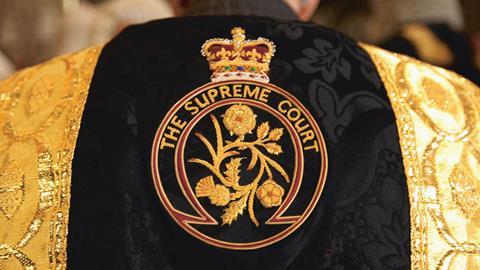The current upheaval in the US over the appointment of the new US Supreme Court justice raises issues which are sharply topical here, although in different form. The recent interview given by Lord Reed, the new president of the Supreme Court, showed as much.

We may watch the US antics wide-eyed: the Republicans, who refused to process a Democratic nominee during president Obama’s tenure during an election year are now hurrying through president Trump’s nominee, even after postal voting has started; so far, nine people have contracted coronavirus after the formal event just over a week ago when the Republican candidate, Amy Coney Barrett, was introduced at the White House; two of those are members of the Senate Judiciary Committee, which has to consider her candidacy, so endangering her vote; and so on.
This raises the old question of the method by which their and our Supreme Court justices are appointed. Theirs may be unedifying, but it is democratic nevertheless.
Interestingly, our government is tackling the same issue right now, but in a very different way. At the end of July, it launched an independent review of UK administrative law, focused on judicial review. The accompanying press release said that the review will consider whether the right balance is being struck between the rights of citizens to challenge executive decisions and the need for effective and efficient government.
Although the release also said that the work ‘forms part of the Lord Chancellor’s duty to defend our world-class and independent courts and judiciary that lie at the heart of British justice and the rule of law’, the lord chancellor gave a truer indication of its motivation when he said that: ‘This review will ensure this precious check on government power is maintained, while making sure the process is not abused or used to conduct politics by another means.’
We know what he must mean. The outcome of the two cases brought by Gina Miller, and decided by the Supreme Court against the government (on the parliamentary vote on Brexit, and on the prorogation of parliament), were not popular with many people and the press, never mind the government. Some felt that the judges had overstepped the mark.
There are several responses to the Miller cases.
One is to consider whether there should be more political accountability in the appointment of our most senior judges. It is true that the example of the United States – the last appointment of Brett Kavanaugh and the developments so far in the appointment of Amy Coney Barrett – does not make that route very appealing to our eyes. Despite being democratic, it is very demeaning, including to justice itself. The US Supreme Court is somehow tainted by the savagely partisan fights which regularly break out as justices try to reach it.
Another response is to accept our current system for what it is. Judges will be called on to make deeply political judgements, and we have to trust our current systems of training, practice and selection to ensure not only that judges are appointed from a diversity of political backgrounds but that judges are appointed who are mindful of their responsibilities to keep their political leanings out of their legal analyses. Those two criteria may be contradictory, but they are an expression of a view that political leanings will always play a role, and so need to be balanced and countered to the extent humanly possible. (This appears closest to Lord Reed’s view.)
Or, there is the third option, which the government has chosen: to move towards further reductions of access to judicial review. On this reading, given the heavy focus in the new review’s terms of reference on questions of non-justiciability and efficiency, the government would like to take certain areas out of judicial review, presumably to ensure that the two Miller cases could not be brought in similar circumstances in the future.
Well, we can be mini-judges ourselves in deciding which option we prefer. Will we be able to keep our own culture war prejudices – on Brexit, for instance, or on our view of the government’s performance on a range of issues – out of the reasoning behind whichever choice we make?
I don’t like any of the options on offer. But of the three, I prefer the first, provided it is substantially modified.
In other words, I think it is inevitable that judges will make decisions involving political controversies. I don’t think that our current secretive method of selection satisfies the need for political accountability, and I don’t think that removing certain areas from judicial review, and so giving the government a freer hand, satisfies in terms of legal accountability.
So I prefer an improvement in political accountability, through an element of political scrutiny during senior judicial appointments – not the full-blown American method, but not nothing, either.
Jonathan Goldsmith is Law Society Council member for EU matters and a former secretary general of the Council of Bars and Law Societies of Europe. All views expressed are personal and are not made in his capacity as a Law Society Council member nor on behalf of the Law Society
































6 Readers' comments